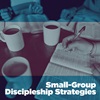I'm in a couple of small groups—one that has only been together a few months and another that I've been part of for years. In some ways, both groups seem "new" to me. Why, you ask? It is because even the group that I've been part of for years is different now. Sure, the make-up of the group is a little different than it was years ago, and the people are different—changed, transformed by Christ in many ways. But even beyond that, I've noticed the dynamics of small groups are a little different now than they were 10-15 years ago.
Over the past 15 years, I've been in groups involving every generation of people—I've led a group of preschoolers. I've led a group in a nursing home, and everything in-between. Regardless of age, I'm noticing some shifts in people. Granted, you will see the shifts first in the younger generations, but the shift is moving up the generational ladder quicker than people are actually aging.
As a group leader, you need to be aware of some of these shifts and make adjustments in your group leadership. It has nothing to do with moving away from Biblical community and Biblical truth; it is about recognizing the shifts in culture and ministry that are necessary to maintain Biblical community. People have been putting different labels on the shift—post-modern, post-Christian, emergence, Information Age, Eastern vs. Western mindset, etc. What you call it doesn't really matter to me, but here is what I'm noticing:
From Long to Short
In the world of small group curriculum and study guides, publishers are starting to notice the shift. Small group curriculum has a shorter half-life now than it used to. A half-life is the time it takes for something to lose half it potency or effectiveness. Group study guides and curriculum used to commonly contain material for 12 or more sessions on a given topic or book. Recently the trend is towards studies with much shorter horizons—six sessions or shorter. Dwelling on the same topic for 12 weeks or more makes us feel like we are stuck in a rut!
Some attribute this to shortening attention spans stimulated by media programming we see today (quicker scene changes, etc.). While I'm sure this is a contributing factor, I've also seen "change" become the norm for people—changing jobs, changing homes, changing relationships, changing world. People have experienced so much change that they have gone from accepting change to almost expecting change as normal. Our fast-changing world has conditioned people to think, "if it's not changing, it must not be normal."
A decade ago, launching into a 12-week or more group study, made you feel like you were covering material more adequately and not missing anything. Today, a 12-week or longer study makes you feel like you're wasting time on one thing when there's so much more we could be doing! In fact, there is a trend towards one-week curriculum—let's dive into what is on our radar screens this week. Maybe it is the pastor's sermon, or the movie I saw this week, or the devotional reading I did this week, whatever it is people feel the need to deal with it in real-time.
Leader adjustment: It is fine to dive into longer group studies, but realize you need to help your people apply God's Word in real-time. One idea may be to even step away from the study focus for a few weeks to address questions, or put focus into practice by doing a service project. Help them to see what you are doing not as an X-week study, but a week by week journey together, letting Jesus be our leader and teacher. The curriculum is just a road map or a tool we will be using along the way (1 Cor. 11:1).
From "I'm not being fed" to "I'm not growing"
I used to hear it all the time—"I'm just not being fed in this group" or "I'm just not being fed by this curriculum." Ugh! Perhaps statements like that were being driven by a very consumer oriented mindset of a decade ago or so. Today, I don't hear that line nearly as much as I used to. Instead I'm hearing, "I'm not growing." People say it in various ways: "I've been going to a Bible study but I haven't bonded with anyone there…" or "I think I would like to try a different group…" The problem is not knowledge—they've been fed plenty. It is that all that spoon-feeding has not really satisfied and nourished to the point of growth after all?
Tom Bandy of EasaumBandy.com comments: "Modern people take everything seriously … and then behave selfishly. Postmodern people take everything ironically … and then behave generously. Modern ideologues (liberal or conservative) are like the Pharisees and Sadducees … straining out gnats and swallowing camels. And I think postmodern people in general are fed up with it. They resort to comedy, satire, irony, and irreverence to get at the real heart and depth of the human condition."
Growth, post-modern people are realizing, is not about the goal of gaining the most knowledge. Information intake has been so abundant and easy that people are starting to feel fat and lazy and not healthy and growing. That is why today I see more people craving growth through discovering their purpose and mission in life. They perceive that what really helps is when you burn some of those knowledge-fed calories in service and actually love someone more than you used to.
Leader adjustment: Help your group understand that the reason they've not been feeling well is that they have been bingeing on information. What they really are craving is a spiritual workout of service and mission. Help them not just look in the mirror, but to do something about what they see (James 1:22-25).
From Program to Process
Relationship is the key ingredient in healthy spirituality—relationship with God and with one another. Relationship is a process-driven enterprise. People are rejecting the notion that we can program our spirituality using four spiritual laws, three easy steps, 40 days or whatever. Today, they want to know how to "join you on the journey, rather than "get with the program." They don't find the security in the predictability of the program, rather they depend on relationships and crave the spontaneous, the edgy stuff that preserves the mystery of God. They'd rather spend time to complete a "common cause" together than complete the curriculum. I'm experiencing this shift in several practical ways in the small group setting:
- Moving away from someone bringing snacks for the group meeting to sharing simple meals prepared cooperatively.
- Moving away from rotating who recites the study guide questions to taking turns sharing personal testimonies.
- Moving away from creating volunteer-dependent group tasks to fostering an everyday life-style servanthood.
- Moving away from developing witnessing techniques to developing friendships with the lost.
- Moving away from low-vulnerability prayer requests to sharing stories of brokenness and inviting accountability.
Leader adjustment: If you are program-oriented, shift the emphasis from completing the program to completing the journey and hold relational ministry as your highest group value (Acts 2:42-47).
From Pious to Pagan
When small group ministry was first gaining momentum in churches, the same twenty percent got involved in groups that did everything else in church. Small groups were promoted as the missing link in spiritual growth for established Christians. Now small groups are being touted as one of the most powerful evangelistic tools of our time. Small groups have become the front door to church for many non-believers. No longer do people only need the safety of an anonymous large group worship service, instead they also need the safety of a few other people who they can share life stories with and be openly loved for who they are. I was reminded of this in a recent email I received:
"I have been on vacation, spending time with my 26 year old son who will be going to Iraq in late summer or early fall. We spent two days in New York City. At the Manhattan USO there was a flyer to be part of the audience of Comedy Central's show "Tough Crowd with Colen Quinn". We had to wait in line with mostly people in their early 30's or late 20's. There were a few old people like me and my wife, but the audience was definitely Post Modern. They packed people 100 people in a small studio. A fire marshal would have had a fit. People were sitting in the steps, etc. The first thing I noticed was the "Politically Correct" had no meaning with this group. Also, the language used showed me that I lived a very sheltered life. Yet, the whole experience was incredibly real. The show had a group of five comics discussing politics. The comics and the audience were incredibly honest. They just let their feelings hang out. People were far less uptight than I found in numerous churches. When my son mentioned he was going to Iraq, there was an outpouring of caring. After the show they talked with us. They hugged my son. They hugged his parents. I have never been hugged by a television star before. The star even took my son's name for when he came to Iraq to do a USO show in late Fall or Winter….. I also visited a church while we were on vacation. The church worship was inspiring and the Church people were concerned, but they did not offer to pray for us—they did not hug us. The experience got me to thinking. How do I lead a church or small group to care like these secular TV comics?"
Leader adjustment: Today, your small group community has at least as much if not more potential to reach people who are far from God than any other "church activity." Don't miss the opportunity to invite some non-believing friends into that community (Luke 19:7).
Remember, even if your group is not "new," you're going to find some "new" realities permeating the dynamics of your group. Make the leadership adjustments necessary to journey with your group into the emerging culture.









